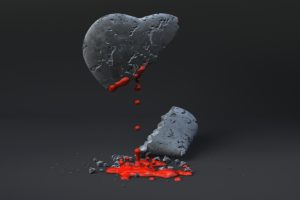Recent research has shown a direct link between atherosclerosis and osteoporosis. Much of it centers on Vitamin D and Vitamin K2 deficiencies and how they affect your endothelial cells.
and Vitamin K2 deficiencies and how they affect your endothelial cells.
Now before we examine this link between atherosclerosis and osteoporosis let’s first understand what these words mean.
-
Atherosclerosis involves the calcification of your vascular tissue.
-
Osteoporosis involves the decalcification of bone tissue.
Here is a medical fact that few physicians know, and even fewer in the general population have ever heard about. As you age your endothelial cells, which line all of your cardiovascular system, can turn into bone cells. They are known as osteoblasts, which normally regulate bone formation.
This discovery was originally made in 1993. Since this discovery research has shown a link between atherosclerosis and osteoporosis. Those with atherosclerosis typically also have weaker, more brittle bone with an increased risk for fracture. Those with osteoporosis typically exhibit hardening of the arteries or atherosclerotic calcification leading to atherosclerosis.
To date the precise biological mechanisms behind the transformation of endothelial cells into osteoblasts, or bone-forming cells, is not fully understood. What is understood is the key role Vitamins D3 and K2 play in ensuring that calcium is properly used in bone formation while at the same time preventing the pathological calcification of your arteries.
These two nutrients operate synergistically to combat atherosclerosis and osteoporosis.
Vitamin D and Its Role in Atherosclerosis!
Most people know about the role Vitamin D plays in healthy bone structure and function. What most people do not know is how important Vitamin D is to cardiovascular health. Here is a short list:
- Vitamin D inhibits vascular calcification, which can lead to atherosclerosis.
- Vitamin D deficiencies are associated with hypertension, diabetes, increased thickness of the carotid artery, heart attack, and stroke.
- Below normal levels of vitamin D is also implicated in congestive heart failure.
To increase vitamin D levels in the blood stream you need to consume vitamin D3 sources rather than vitamin D2. Click hear for a better understanding on the differences between vitamin D3 and D2.
Vitamin K2 and Its Role in Atherosclerosis!
Most people have never heard of Vitamin K yet it plays a critical role in stimulating new bone formation. Without the proper amount of Vitamin K2 in your system, your body cannot properly bind calcium and phosphorus to form the matrix necessary to produce and maintain solid, well-mineralized bone.
While the presence of Vitamin K2 is critical for bone formation, it is also necessary to protect against the calcification of the vascular system.
And what adds to this confusion about the importance of vitamin K2 is that it gets confused with vitamin K1. Click here for a better understanding on why you need to increase your vitamin K2 levels to help protect you from the calcification of your arteries.
Atherosclerosis and Osteoporosis!
Two age-related diseases are atherosclerosis and osteoporosis. While there are many contributing factors to the progression of each of these two diseases, medical science has now been able to establish a direct link between them. That direct link points to deficiencies of both Vitamin D3 and Vitamin K2 intake.
Research has clearly shown that these two vitamins work synergistically to facilitate bone mineralization leading to strong and healthy bones.
At the same time they work synergistically to prevent calcium deposits from accumulating in your vascular system leading to atherosclerosis.
Leave a Reply
You must be logged in to post a comment.